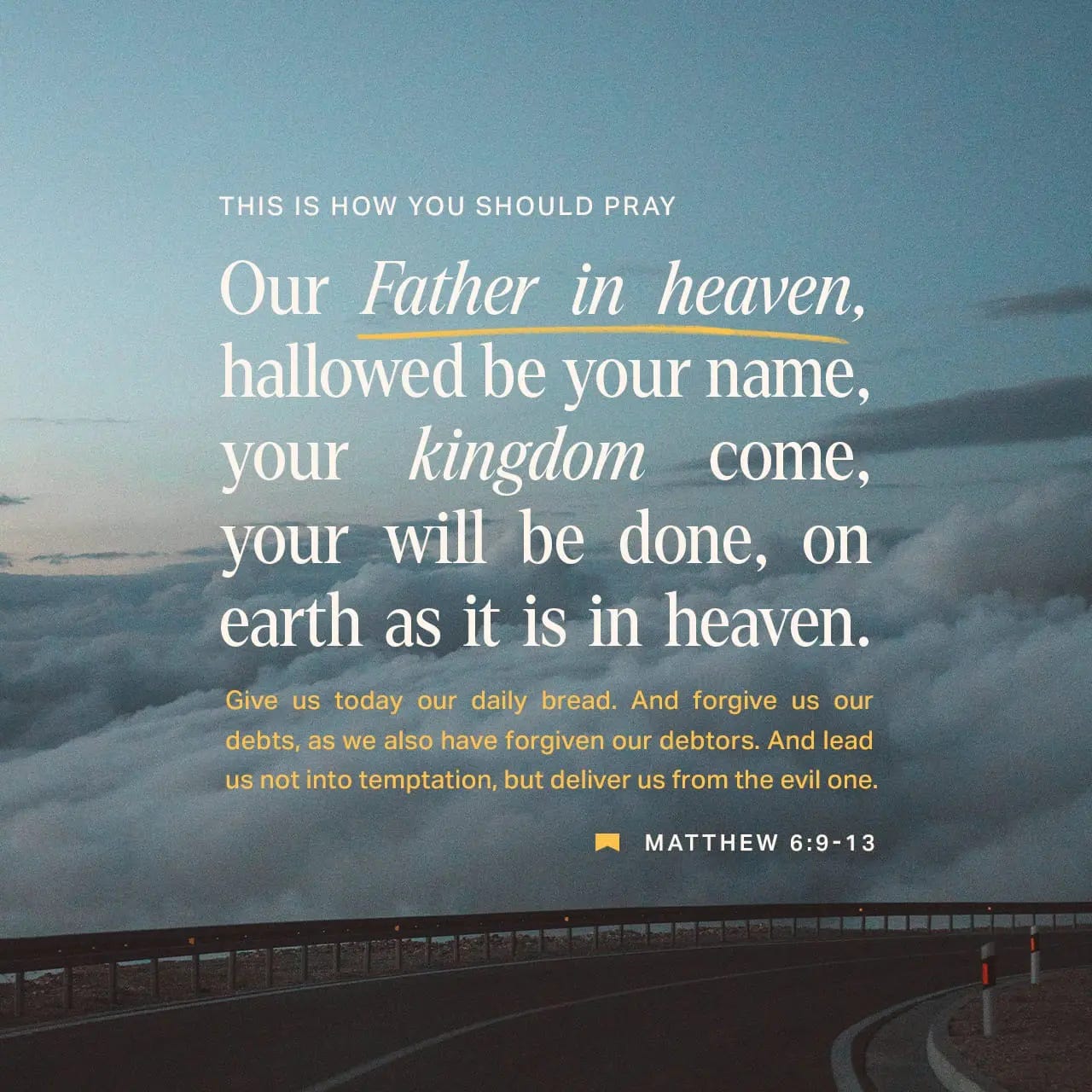The Power of Simple, Heartfelt Prayer
Based on Matthew 6:9–13 (NIV)
"This, then, is how you should pray: “‘Our Father in heaven, hallowed be your name, your kingdom come, your will be done, on earth as it is in heaven. Give us today our daily bread. And forgive us our debts, as we also have forgiven our debtors. And lead us not into temptation, but deliver us from the evil one.’”
— Matthew 6:9–13, NIV
There is something sacred and powerful about prayer. It is the bridge between heaven and earth, the line of communication between Creator and creation. Yet too often, we overcomplicate it — thinking that more words or “perfect” phrases make our prayers more effective. But Jesus, in teaching His disciples how to pray, reveals something radically freeing: prayer is simple, reverent, and relational.
In Matthew 6, Jesus warns against the performance of prayer:
"And when you pray, do not keep on babbling like pagans, for they think they will be heard because of their many words." (v. 7)
God is not impressed with eloquence; He’s moved by sincerity. He is not persuaded by long speeches; He’s drawn by faith-filled conversation. Prayer is not about impressing God — it’s about inviting Him into every part of your life.
That’s why Jesus offers a beautiful, structured prayer — often called the Lord’s Prayer — not as a script to mindlessly repeat, but as a model of how to approach God.
Let’s look at the heart of this prayer:
1. “Our Father in heaven, hallowed be your name.”
Prayer begins with relationship and reverence. Jesus invites us to call God “Father.” This changes everything. He’s not a far-off ruler — He’s a loving parent who welcomes us close. And yet, even in this closeness, we reverence His name. “Hallowed” means holy, set apart, revered.
Ecclesiastes 5:2 reminds us: “God is in heaven and you are on earth, so let your words be few.” Not because God is distant, but because His presence is weighty and worthy of respect.
2. “Your kingdom come, your will be done, on earth as it is in heaven.”
Prayer isn’t just about asking for what we want; it’s about aligning with what God wants. We are inviting heaven’s rule to invade earth’s circumstances.
In Romans 12:2, Paul urges us to “be transformed by the renewing of your mind. Then you will be able to test and approve what God’s will is—his good, pleasing and perfect will.” Prayer is one way we renew our minds and surrender our agendas to God’s purposes.
3. “Give us today our daily bread.”
This isn’t just about food — it’s about dependence. Jesus reminds us that God is our provider. We don’t come with greed, but with trust for today’s needs.
Philippians 4:19 affirms, “And my God will meet all your needs according to the riches of his glory in Christ Jesus.”
4. “And forgive us our debts, as we also have forgiven our debtors.”
Prayer is a space for repentance and release. We confess our sins and, in turn, extend grace to others. Forgiveness is both received and given.
Mark 11:25 says, “When you stand praying, if you hold anything against anyone, forgive them, so that your Father in heaven may forgive you your sins.”
5. “And lead us not into temptation, but deliver us from the evil one.”
God is our protector. In prayer, we seek His guidance and His strength to overcome the attacks and enticements of the enemy.
1 Corinthians 10:13 assures us, “God is faithful; he will not let you be tempted beyond what you can bear…he will also provide a way out so that you can endure it.”
This simple, five-part structure reminds us: prayer is not complicated. It’s heartfelt conversation. It’s spiritual alignment. It’s communion with the One who already knows what we need before we ask (Matthew 6:8), but still invites us to ask because He loves us.
So how do we walk this out practically?
Three Ways to Seek God’s Will and Live This Prayer Daily:
1. Pray the Lord’s Prayer Slowly and Personally
Instead of rushing through it, pause at each line. Reflect and expand on the meaning in your own words. Make it your own. For example, when you say “your kingdom come,” talk to God about areas of your life where you need His rule and peace.
2. Start a “Daily Bread” Journal
Each morning or evening, write down what you need from God that day — not just physical needs, but spiritual strength, clarity, or peace. This helps you cultivate daily dependence rather than anxiety about tomorrow (see Matthew 6:34).
3. Forgive as a Daily Practice
Don’t wait for big offenses. Make it a habit to ask God, “Is there anyone I need to release today?” Whether it’s a frustration, a harsh word, or a lingering grudge — choose grace. This clears the way for your prayers to flow freely (see Matthew 5:23–24).
God doesn’t need impressive speeches — He desires honest hearts. With a reverent spirit and a childlike trust, you can come boldly to your Father, knowing that your prayer life is powerful, not because of your words, but because of His presence.



